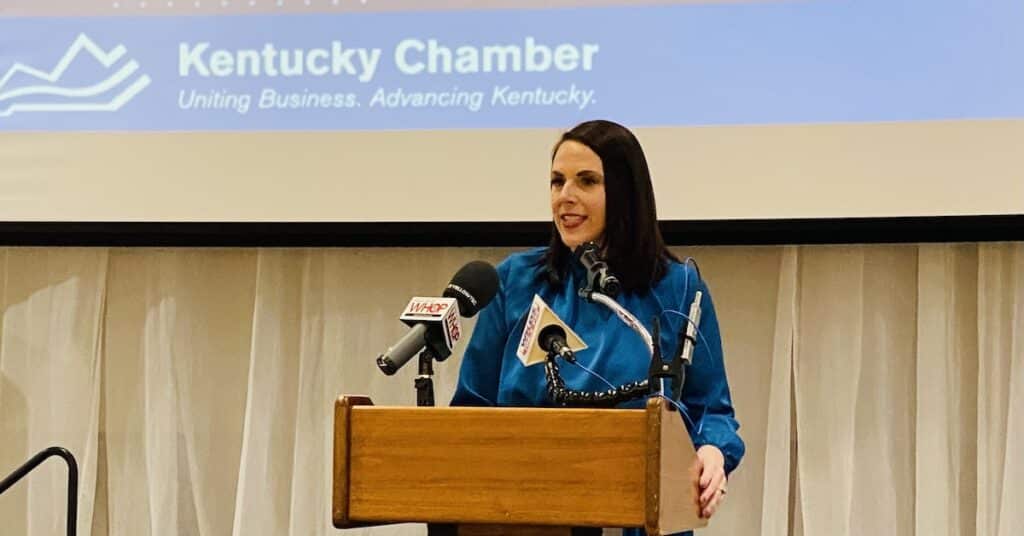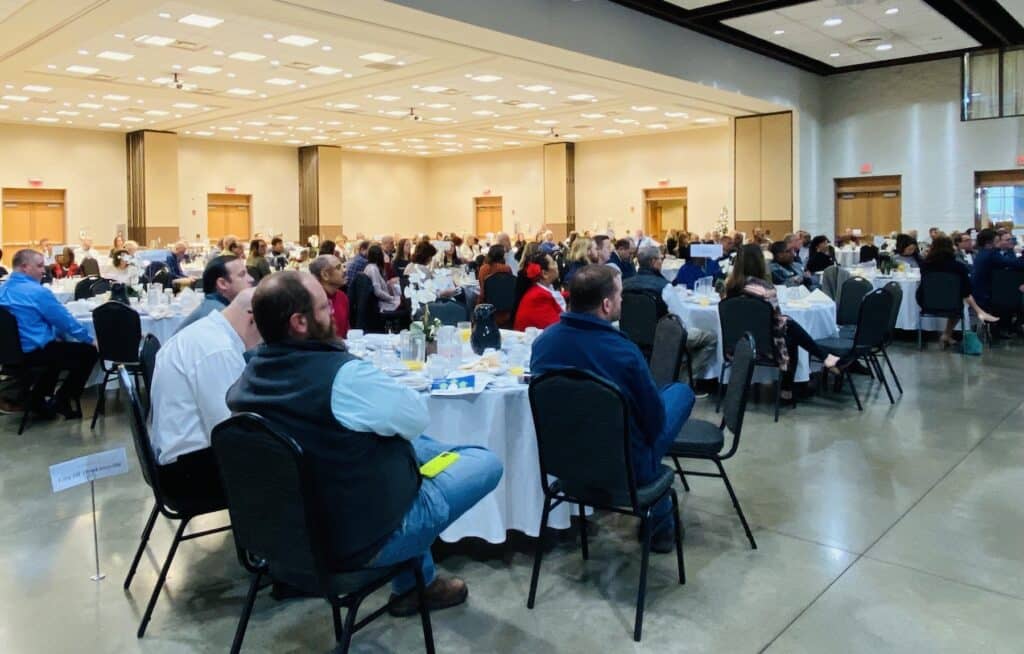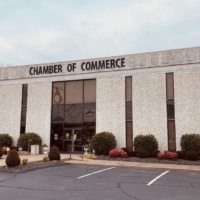Legislation aimed at increasing the number of Kentuckians in the workforce, along with incremental reductions to eliminate the state income tax, are top legislative priorities for the Kentucky Chamber of Commerce, the organization’s president and CEO told a Hopkinsville audience Tuesday morning.
Kentucky ranks seventh among the states with the lowest rate of workforce participation, said Ashli Watts. Too many Kentuckians who could work are not currently employed, she said.
“We can do better than this,” she said, speaking at the Christian County Chamber of Commerce’s eye-opener breakfast. About 180 people attended the meeting at the James E. Bruce Convention Center, said local chamber President and CEO Taylor Hayes.

Child care access
Watts highlighted a program the Kentucky Chamber supports that seeks to get more people into the workforce by increasing access to child care services.
House Bill 499, the Child Care Assistance Partnership that was adopted this year, will help some Kentuckians with child care expenses — which the Kentucky Chamber estimates ranges between $6,300 to $11,300 annually for an infant.
Employers who agree to help workers with the cost of child care can have their assistance matched. So if a business gives a $200 monthly incentive to an employee for child care, the state fund will pitch in an additional $200 for an eligible worker’s child care expenses, based on income and other factors.
The program starts this spring, said Watts. The Cabinet for Health and Family Services will administer it. Applications may be submitted over the phone at 855-306-8959 or online through kynect.
The Kentucky Chamber declared in a 2021 report that child care was a major factor in the state’s diminished workforce — estimated that 45,000 to 50,000 Kentuckians were not working because of child care issues.
- SUBSCRIBE: Sign up for our newsletters
State Rep. Samara Heavrin, a Litchfield Republican who sponsored HB 499, said the inability of some workers to find or afford child care results in $573 million in lost wages, workplace productivity and tax revenue.
Christian County’s state legislators — Rep. Walker Thomas, Rep. Myron Dossett and Sen. Whitney Westerfield, all Republicans — voted in favor of the Child Care Assistance Partnership, and Thomas co-sponsored the legislation. It passed 80 to 5 in the House, with 1 member abstaining and 14 not voting. In the Senate, it passed 33 to 3, with two members not voting.

Nonprofit and for-profit employers of all sizes are eligible to participate in the program; however, 25% of $15 million in state money set aside in the budget is reserved for small employers with fewer than 50 full-time workers.
State income tax
In other legislation adopted this year, lawmakers agreed to reduce the state income tax from 5% to 4.5%, assuming certain revenue projections are met. The rate will go into effect for the tax year beginning Jan. 1.
The Kentucky Chamber will push for additional cuts until the income tax is eliminated, said Watts.
“We have to be competitive,” she said. “We have to bring more people to Kentucky.”
Republican lawmakers and many business advocates believe Kentucky’s economy would be more competitive with states such as Tennessee, which doesn’t have an income tax.
Opponents of the change argued it will shift too much of the tax burden to lower-income Kentuckians with potentially higher consumption taxes. Gov. Andy Beshear vetoed the legislation, but Republican easily overrode his opposition.
Lobbying influence
The Kentucky Chamber is among the state’s most influential organizations in legislative matters. It spent $183,949 in lobbying the General Assembly during the 2022 session — more than any other group or business, according to a report from the Kentucky Legislative Ethics Commission. The Kentucky Hospital Association was second, spending $149,046.
In all, 826 businesses and organizations lobbied the state legislature, spending a combined $11.13 million and setting a Kentucky record in lobbying expenditures for one session.
You can read the Kentucky Chamber’s 2023 legislative priorities online.
The General Assembly’s 2023 session will convene on Jan. 3. Here are key dates during the session.
Kentuckians can track legislation with the Legislative Research Commission’s online tools. Contact information for legislators is available here.
Jennifer P. Brown is co-founder, publisher and editor of Hoptown Chronicle. You can reach her at editor@hoptownchronicle.org. Brown was a reporter and editor at the Kentucky New Era, where she worked for 30 years. She is a co-chair of the national advisory board to the Institute for Rural Journalism and Community Issues, governing board past president for the Kentucky Historical Society, and co-founder of the Kentucky Open Government Coalition. She serves on the Hopkinsville History Foundation's board.





